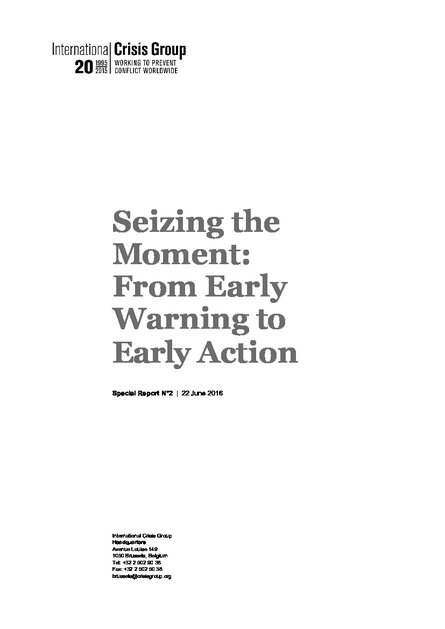
After a period of relative calm, an upsurge of crises is testing the international system, pitting major powers and regional players against one another and highlighting the weaknesses of preventive diplomacy. Governments and international organisations were taken by surprise by the Arab uprisings in 2011 and slow to react to crises in South Sudan and the Central African Republic (CAR) in the years that followed. Global and regional rivalries have weakened diplomacy over Syria, Ukraine and the South China Sea. Policymakers, stretched by the symptoms of this wave of instability, including mass displacement and the spread of transnational terrorism, struggle to focus on conflict prevention.
Yet, preventive diplomacy is not necessarily dead. The Iranian nuclear deal, progress toward peace in Colombia and the high-level push to avoid election-related chaos in Nigeria in 2015 have been reminders of what intensive international engagement can deliver. If politicians, diplomats and international officials invest in key dimensions of early warning and early action – analysing conflict dynamics closely, building sensitive political relationships in troubled countries and undertaking complex “framework diplomacy” with other powers to create political space for crisis management – they still have a chance to avert or mitigate looming conflicts and ease existing wars.
This report, drawing on Crisis Group’s field-centred analysis and policy recommendations from the past five years, sets out a broad strategic framework for preventive diplomacy. Its primary focus is on conflicts, like those in Ukraine and Syria, which directly involve outside powers. While classical inter-state conflicts remain rare, internationalised civil wars are a leading source of regional and global frictions. Building frameworks to address both the internal and external tensions that shape them is likely to be a recurrent challenge for big powers, regional players and multilateral organisations in the years ahead.